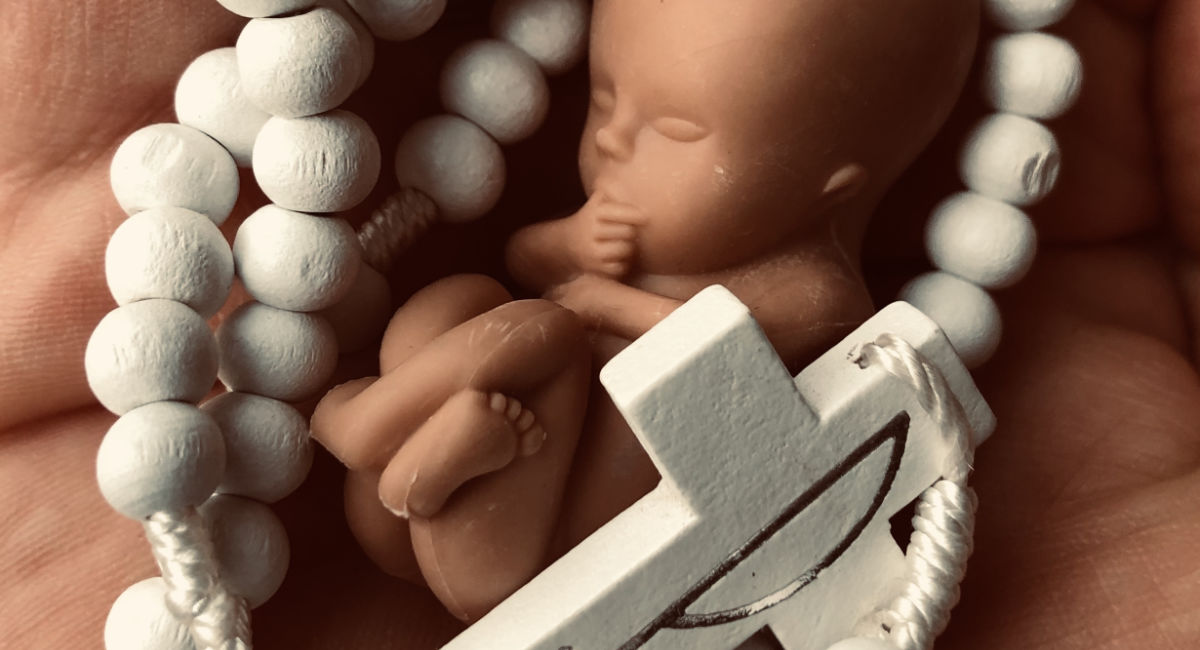(NRL News Today) In a sense it only makes sense to our benighted opposition that they would see access to abortion as “a blessing.” The rationales run the gamut from A-Z but the blanket excuse that undergirds this mentality for the person of faith is that why would God give us free will if we can’t exercise it? If in exercising this it happens to snuff out one of His creations, He’s a God of grace, right? Besides it’s a “blessing.”
Which takes us to the publication The Christian Century. Always ultra-liberal, its modest motto is “Thoughtful, Independent, Progressive.”
Annelisa Burns conducted an interview with Katey Zeh, CEO of the Religious Coalition for Reproductive Choice (RCRC). The RCRC is described as “a multifaith organization that advocates for safe and legal abortion access, provides spiritual companionship through abortions, trains faith leaders and activists, and more.”
We’ve written about RCRC, formerly self-designated as the Religious Coalition for Abortion Rights (RCAR), on several occasions. Pastor Paul Stallworth once opined that “RCAR/RCRC exists, one might say, to provide religious legitimation for abortion on demand.”
So how in an interview headlined “Seeing abortion access as a blessing,” does Zeh square the circle? Don’t need to. It’s a given that abortion access is a “blessing” [if] we don’t waste a lot of time asking if God if He has a problem with abortion.
So Burns asks what does RCRC do?
A variety of things. We bless abortion clinics. We work with faith leaders, giving them the language and understanding so they can become advocates in their own communities. We train a new generation of activists and have a whole program for students. We also train people who regularly come in physical contact with people having abortions, like abortion doulas, on how to be there if people have spiritual questions about what’s going on, so they can do that work without going to seminary.
Zeh uses all the buzzwords “Intersectionality” and “reproductive justice” and “liberation.” But for our purposes the conversation picks up when Burns asks, “Why do you think so many people assume an opposition between Christianity and abortion?” Her answer, infused with politics, tells you much of what we need to know:
White Christian nationalists deliberately placed abortion at the forefront of the political agenda as a way to bring people together—people who would otherwise not agree—to vote. They’ve put forward a dominant narrative about Christianity and abortion: that they’re antithetical to each other, that to be a true Christian means that you vote a certain way and hold this particular belief. And this has won them many elections. We’re all subject to this narrative—no matter what tradition we come from or what our personal beliefs are—that “Christians are antiabortion.” But we know that statistically it’s not true. The majority of people of faith in the US, including Catholics, identify as pro-choice.
Never mind that the “dominant narrative” has a couple of thousand years under its belt.
As the pro-life Movement became involved in the fight for life, the stereotype was that it composed largely of Catholics. Over time the Movement became more ecumenical, thanks to people like Surgeon General C. Everett Koop and theologian Francis Schaeffer.
Prof. Daniel Williams added even more complexity. In his book Defenders of the Unborn: The Pro-Life Movement before Roe v. Wade and in essays, he pointed out “The media portrayed the pro-life movement as a Catholic cause, but by 1972, that stereotype was already outdated”; and (2) by that same point in time “abortion reform” (had) largely ground to a halt. “The pro-life movement succeeded,” Williams argued, because it drew on the “language of human rights, civil rights, and the value of human life.”
Not a “White nationalist” to be seen.
There are a lot of other “tough” questions The Christian Century asks Zeh but she doesn’t really answer them. To Burns’s inquiry, “Is there a theological argument for being pro-choice?” Zeh responds:
The mysteries around when life begins and when it ends and what it means are ancient and timeless. These are the questions about what it means to be human. I think there’s a lot of hubris in being so clear about when life begins or what it means. These are beautiful mysteries that we just honestly don’t have the answers to. In the Christian texts, while people will point to things, in reality there’s nothing specific about abortion or fetal life at all.
Zeh seals the deal by invoking the ultimate authority for Christians: Jesus.
As a person of faith, there is nothing unclear about the call to care for my neighbor—to be compassionate—in the scriptures. Jesus cared for the person in front of him who was being oppressed by state-sanctioned rules that did not honor their humanity. Jesus asked what they needed and centered that person rather than abiding by rules that might’ve limited what he was able to do for them in terms of their healing.
Which of course begs the question. Is caring for the unborn and that mother and passing laws that give her a chance to breathe before she makes a life and death decision, an example of “state-sanctioned rules that did not honor their humanity”?
There is a lot more to the interview including this do[o]zy:
When I get caught up with the abstract stuff, I think about all of the people I met there and the people who have told me their abortion stories since then, and I understand that abortion is not abstract. It happens within the context of a real person’s life.
No wonder she can tell Burns, “I’ve never really had that internal struggle.” And why would she? The unborn is not even part of the conversation!
Zen concludes[:]
I talk about abortion as a blessing. People have told me that it saved their lives or was a catalyst for them to make changes.
A “catalyst” for change. Tell that to the unborn child.







